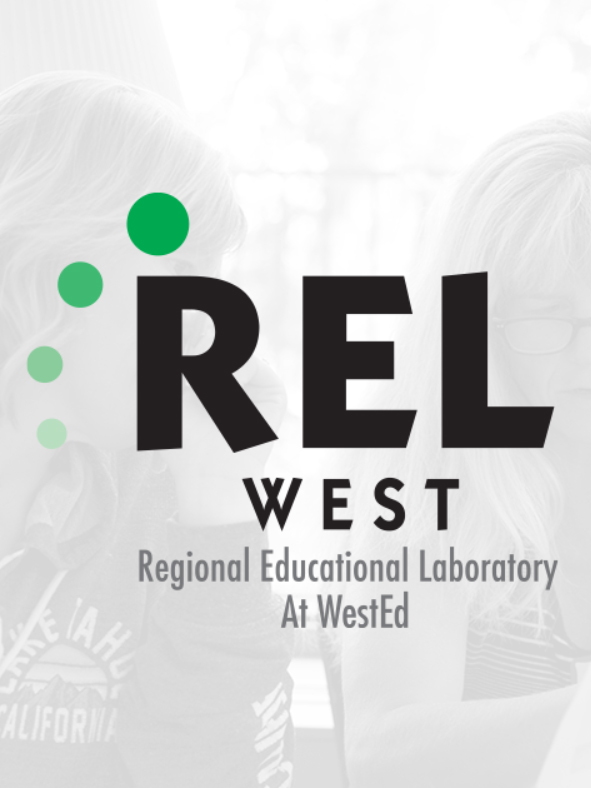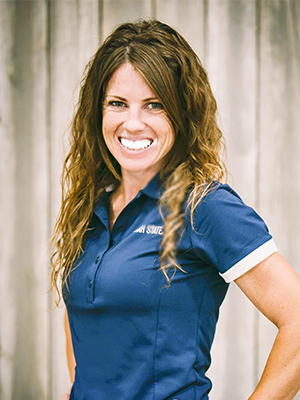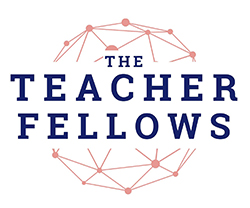ULEAD Research Partners
Utah Leading through Effective, Actionable, and Dynamic (ULEAD) Education works with researcher partners, Utah institutes of higher education, and education organizations throughout the state. Partnerships between research institutions and K-12 practitioners are critical to the success of ULEAD.
Researchers
|
|
|
|
|
|
Amy Auletto Utah Education Policy Center, |
Kim Austin Research-Practice Partnership Team,
|
Janice Bradley Utah Education Policy Center,
|
Mary Burbank Teacher Education, Professional Development, Engagement, |
|
|
|
|
|
|
Tye Campbell Teacher Education & Leadership, |
Patricia Castillo Regional Education Laboratory Program (REL) West, |
Dale Cox Education Leadership, |
Elizabeth A. Cutrer-Párraga |
|
|
|
|
|
|
Jake Downs Literacy Education & Leadership, |
Parker Fawson Center for the School of the Future, |
Nikola Filby Regional Education Laboratory Program (REL) West, |
Aaron Fischer Technology in Training, Education, and Consultation (U-TTEC Lab), School of Psychology, |
|
|
|
|
|
|
David Forbush |
Cori Groth Utah Education Policy Center, |
Melissa A. Heath Counseling Psychology and Special Education, |
Chathuri Illapperuma Technology in Training, Education, and Consultation (U-TTEC Lab), School of Psychology, |
|
|
|
|
|
|
Brianne Kramer Teacher Education, |
Jennifer McKenzie |
Kelli Munns Instructional Technology & Learning Sciences |
Yongmei Ni Department of Educational Leadership & Policy, |
|
|
|
|
|
|
Nicole Pyle Adolescent Literacy and Secondary Education, |
Keith Radley Educational Psychology, |
Tyler Renshaw Clinical Training of the School Psychology Specialization, |
Laura Rogers Department of Educational Leadership & Policy, |
|
|
|
|
|
|
Andrea Rorrer The Utah Education Policy Center, |
Richard Sudweeks Instructional Psychology and Technology (IP&T) and Educational Inquiry, Measurement, and Evaluation (EIME), |
David Woo Department of Educational leadership & Policy, |
Michael Young Division of Games, |
Institutions
 |
|||
|
Brigham Young University
|
Brigham Young University
|
Snow College
|
Southern Utah University Beverley Taylor Sorenson College of Education and Human Development |
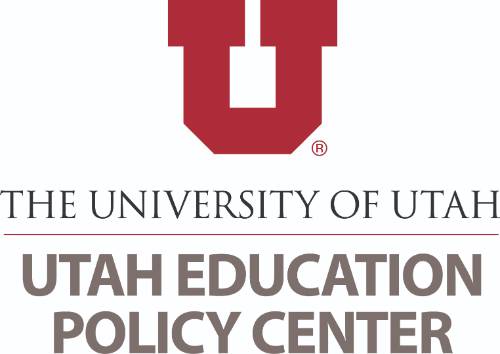 |
 |
 |
|
|
University of Utah
|
University of Utah College of Education |
Utah State University Emma Eccles Jones College of Education and Humas Services |
Utah Tech University Department of Teacher Education |
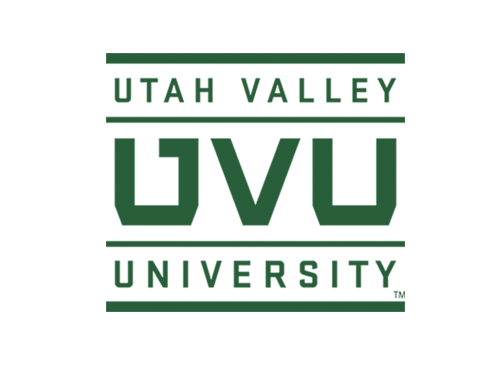 |
 |
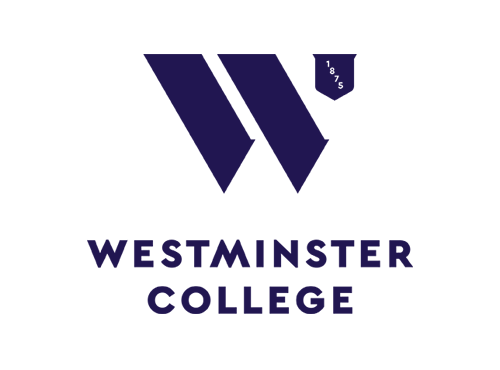 |
|
|
Utah Valley University
|
Weber State University Jerry & Vickie Moyes College of Education |
Westminster College School of Education |
Fact Sheets
Fact Sheets are designed to provide a broad, high-level look at a topic and demonstrate a possible selection of outliers that could be used to learn about practices in action for the topic. The identified outliers and methods may be shared with researchers interested in completing an Innovative Practice Report. Additionally, Fact Sheets may spark related inquiries that ULEAD can support researchers in investigating.
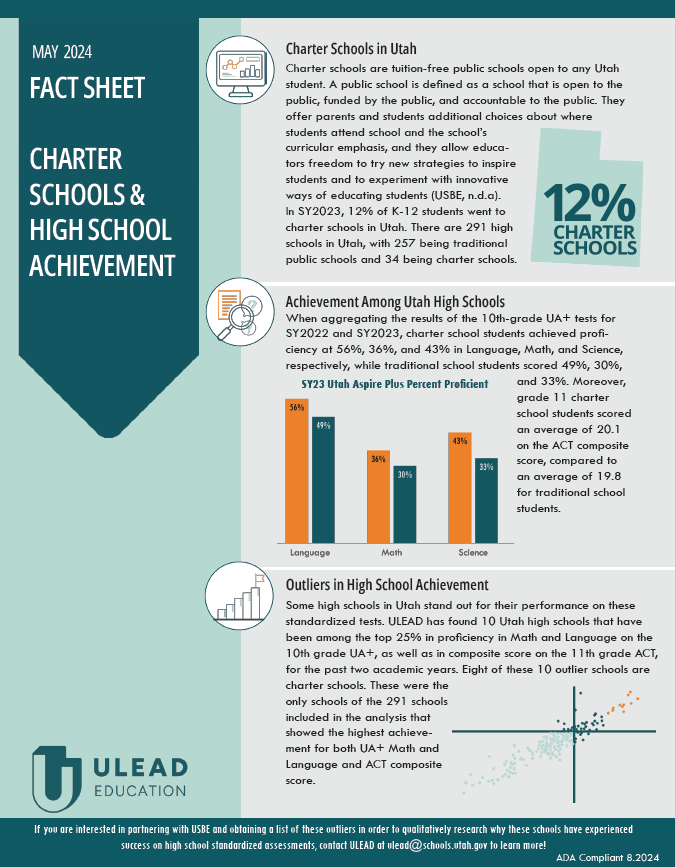 |
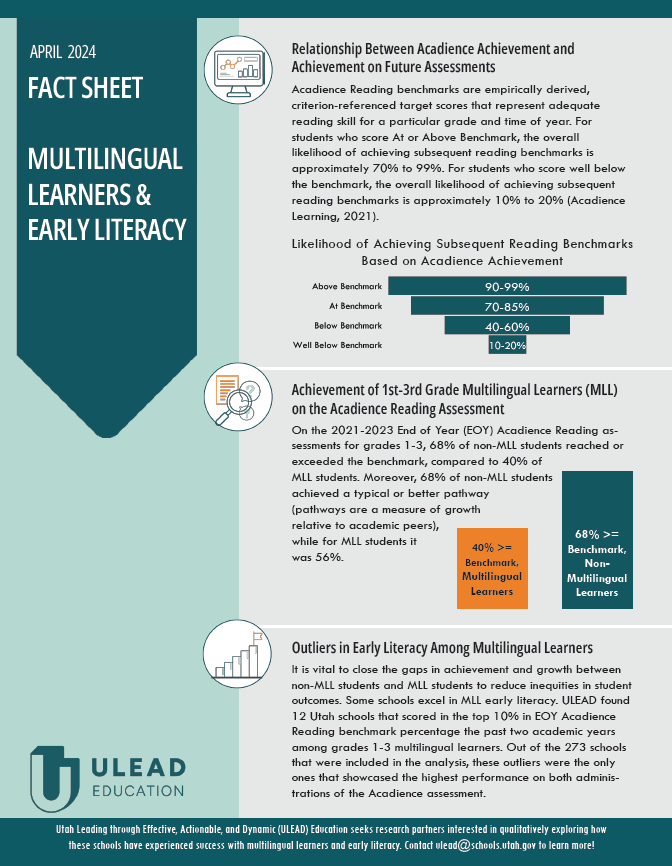 |
| Charter Schools & High School Achievement |
Multilingual Learners & Early Literacy |
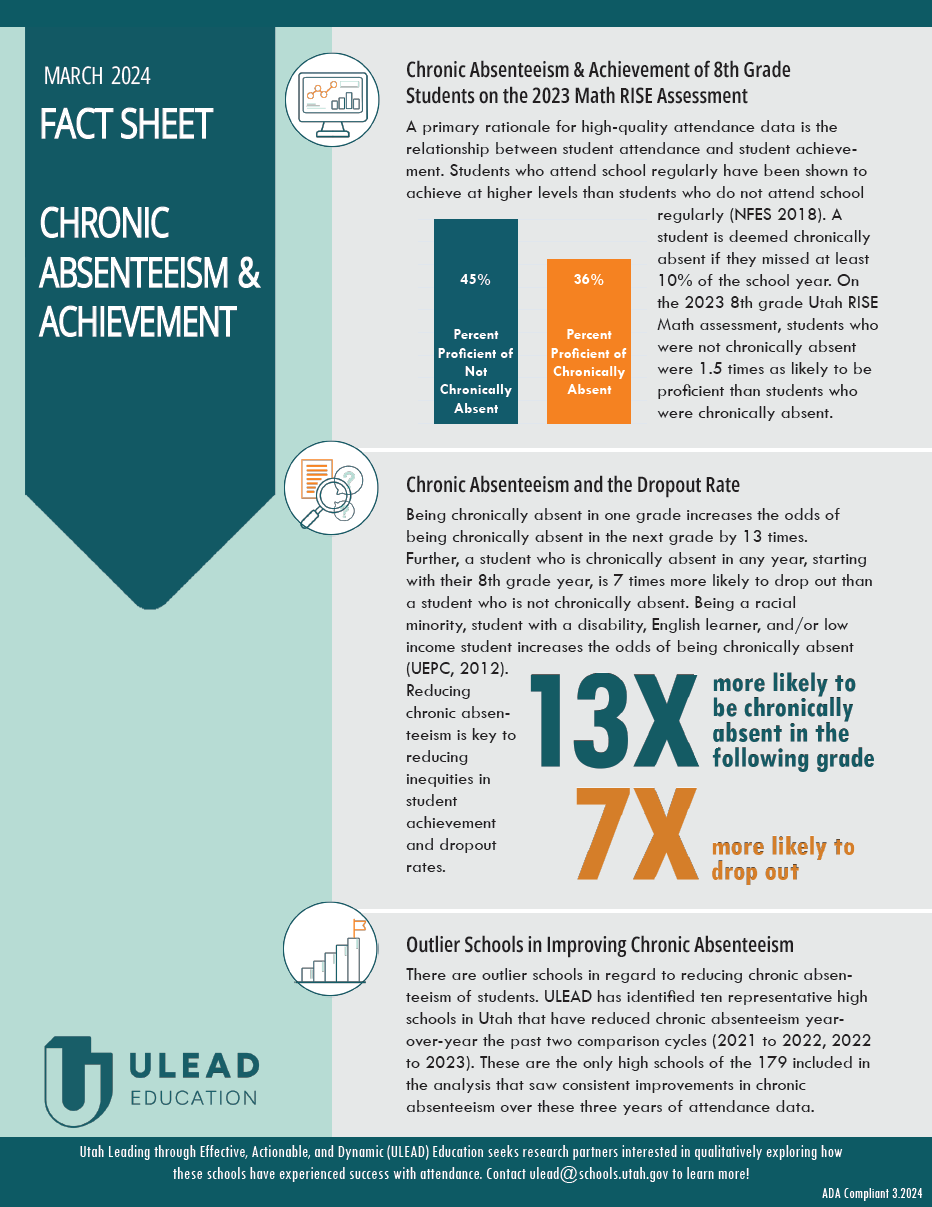 |
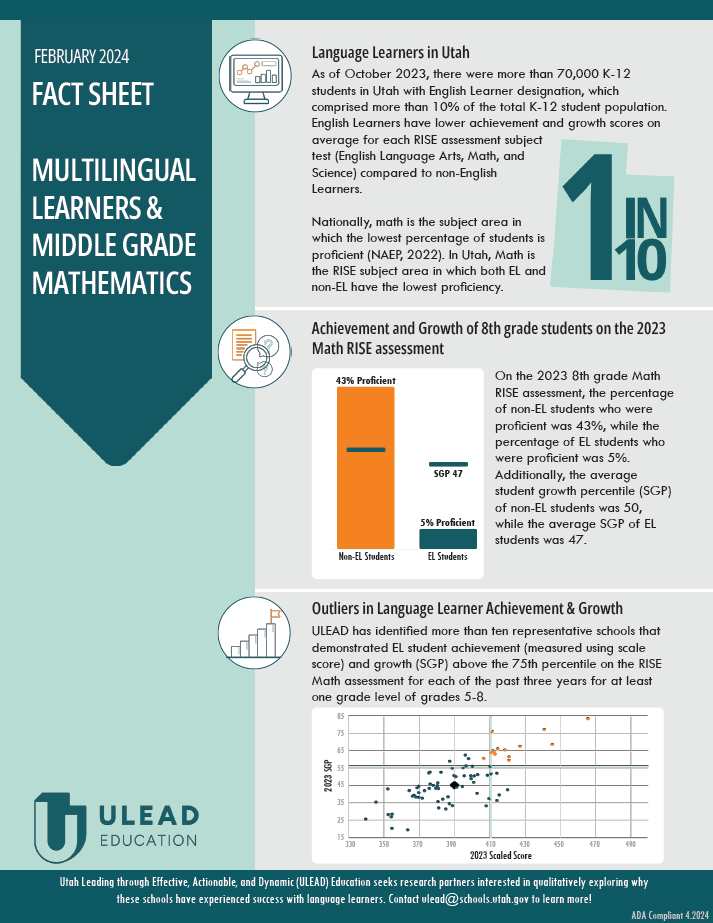 |
| Chronic Absenteeism& Achievement | Multilingual Learners & Middle Grade Mathematics |






